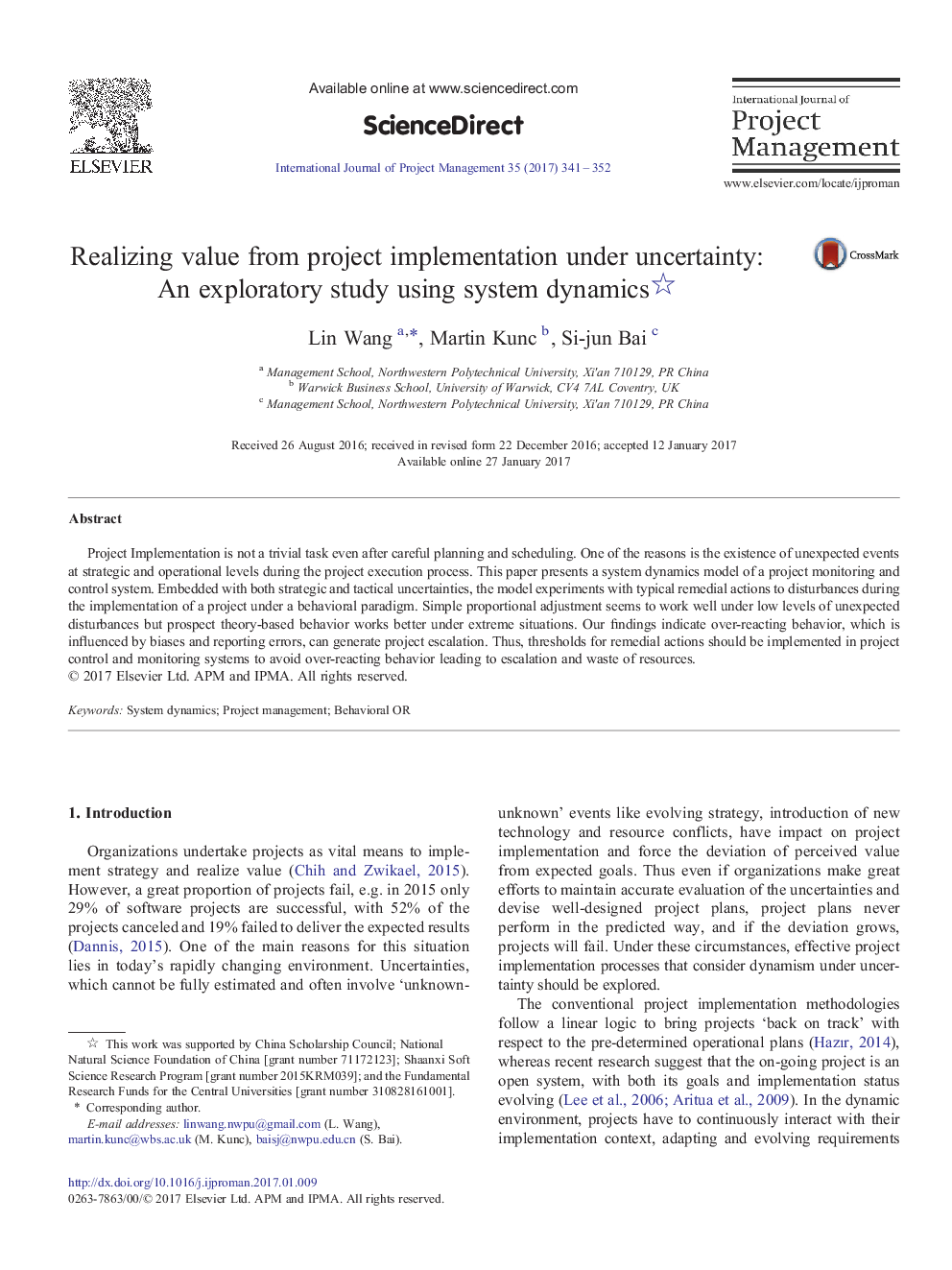ترجمه فارسی عنوان مقاله
درک ارزش از اجرای پروژه تحت عدم قطعیت: یک مطالعه اکتشافی با استفاده از دینامیک سیستم
عنوان انگلیسی
Realizing value from project implementation under uncertainty: An exploratory study using system dynamics
| کد مقاله | سال انتشار | تعداد صفحات مقاله انگلیسی |
|---|---|---|
| 150623 | 2017 | 12 صفحه PDF |
منبع

Publisher : Elsevier - Science Direct (الزویر - ساینس دایرکت)
Journal : International Journal of Project Management, Volume 35, Issue 3, April 2017, Pages 341-352
ترجمه چکیده
پیاده سازی پروژه، حتی پس از برنامه ریزی دقیق و برنامه ریزی، یک کار بی اهمیت نیست. یکی از دلایل وجود وقایع غیر منتظره در سطوح استراتژیک و عملیاتی در طی فرایند اجرای پروژه است. این مقاله یک مدل دینامیکی سیستم یک سیستم نظارت و کنترل پروژه را ارائه می دهد. با هر دو عدم قطعیت استراتژیک و تاکتیکی جاسازی شده، آزمایش مدل با اقدامات اصلاحی معمول به اختلالات در طول اجرای پروژه تحت یک پارادایم رفتاری انجام می شود. به نظر می رسد تنظیم متناسب متناسب در سطوح پایین اختلالات غیرمنتظره به خوبی کار می کند، اما چشم انداز رفتار مبتنی بر نظریه در شرایط شدید بهتر عمل می کند. یافته های ما نشانگر رفتار بیش از حد واکنشی است که تحت تاثیر اشتباهات و خطاهای گزارش شده می تواند باعث تشدید پروژه شود. بنابراین، آستانه برای اقدامات اصلاحی باید در سیستم های کنترل و نظارت بر پروژه اجرا شود تا از رفتار بیش از حد واکنش دهنده منجر به تشدید و اتلاف منابع شود.

